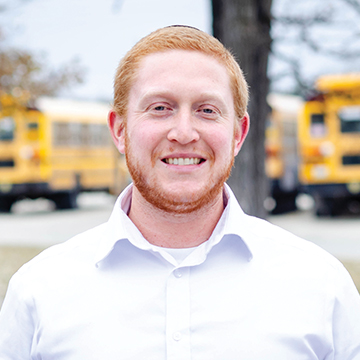March 2020, a date that will live on in lockdown infamy. Can you remember the good old days when you could stroll down hallways, attend meetings, run extra-curriculars, and teach without doth and donning PPE?
The Covid-19 pandemic has changed a lot of things in education. It has also highlighted and reaffirmed what we all knew, public education is front-line and essential. And yet, In the midst of these transitional times, how has inclusion looked at your school? Has your school/school division used the Covid-19 pandemic as justification for inclusionary pull-back, or unprecedented opportunity for development?
Inclusion: Attitudes Have Real-life Consequences
Inclusion is as much, perhaps more, about the attitudes, perspectives, and actions we hold than it is about location. In a recent study (literature review), Dr. John R. R. Freer (University of Winsor) found that students attitudes can have a significant influence on whether students feel acceptance and belonging in their school. Negative attitudes toward Disability pose a barrier to equitable social experiences for students with Disabilities, which work in opposition to inclusive initiatives. For people with Disabilities, a lack of equity in opportunities often ends in poverty, social insecurity, and healthcare precarity (see Bill C-7), but begins with us in education.
A Time to Reflect
February 2021 was Manitoba Inclusive Education Month. The proclamation issued by the Provincial Minister of Education, Cliff Cullen, affirms a commitment to fostering inclusion for all Manitobans. This affirmation is supported by the notion that inclusion is a way of thinking and acting. As such, it is continuously incumbent upon all Manitoba educators and administrators to reflect on, and provide data for school and divisional specific inclusive initiatives.
It was only 40 years ago people with Disabilities in Canada won the Constitutional Right to equality. As a direct consequence, the Disability community in Canada continues to confront discrimination, known as ableism, on a daily basis. Breaking down barriers and educating young Canadians is both our responsibility and privilege as educators. I continue to believe education holds the key to a more equitable society specifically because educators continue to innovate during times of hardship, not in spite of them. It is exactly for this reason the education community must continually evaluate and rethink their Inclusive education approach, strategies, and goals.
Educating for a Better Future
As an educator at Springfield Collegiate (Sunrise School Division), I developed an “Introduction to Disability Studies” course, approved by Manitoba Education & Training, as a significant initiative to address attitudinal barriers and ableism through education. As an educator, I have always believed education holds the key to building a more equitable and inclusive society. With the support of my Principal (Mr. Kevin Doell) and Assistant Superintendent of Student Services and Learning (Mrs. Jackie Julien), our school has been pushing the boundaries of Inclusive education.
In early October 2020, I received an email: “I am reaching out about the Article from the Manitoba Teacher Magazine (December, 2018) about the course you started, “Introduction to Disability Studies”. I have been thinking about it ever since I read the article, and I really think we need this type of course at Fort Richmond Collegiate. I know things are hectic right now with Covid protocols etc., but I’m hoping when you have some time we can connect. I look forward to hearing from you!”
My first thought was, wow this educator held onto an article from 2018, what a pro! Immediately following, I thought, In the midst of these transitional times, Carla Bouchard (Resource Teacher, Fort Richmond Collegiate) was innovating, pushing the boundaries amidst a global pandemic, using Covid-19 as an unprecedented opportunity for development.
That email, started a conversation that led to a collaborative relationship between our two schools. This fall, Fort Richmond Collegiate (Pembina Trails School Division) will be offering Introduction to Disability Studies and educating for a better future.
Covid-19 has done a lot to the local and global community. And yet, one year in, it has only strengthened my belief in the power of education, and the drive-resilience-and innovation of the Manitoba education community.
– Originally published in the March 2021 issue of the MB Teacher

Michael Baker is a writer/contributor for the MB Teacher magazine, a Ph.D. candidate and a student services educator in the Sunrise Teachers’ Association who works primarily with students with disabilities. He is also a featured sessional-lecturer at the University of Manitoba.
